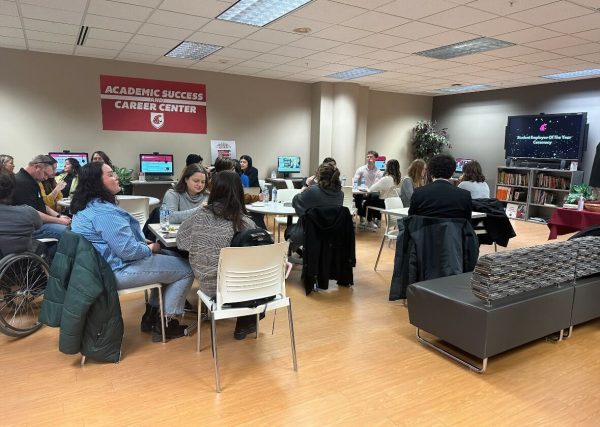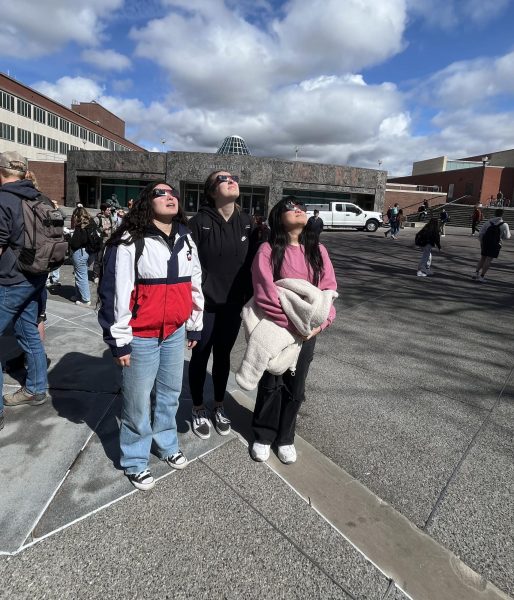Veterans search for a place to call home
September 9, 2013
Tobias Slaton, president of the ASWSU Student Veteran’s Committee, testified before the WSU Board of Regents Friday and emphasized a need to provide student veterans with a place they can call home.
From talks about Greek life to discussions of budgetary construction plans, the Board of Regents concluded its two-day session Sept. 5-6 with an opportunity for members of the public to speak in the Compton Union Building (CUB) 204.
For Slaton, the push for a student veteran’s center is about staying true to university values.
“The Veteran’s Committee and the veteran population are really asking for the school’s help,” Slaton said. “We don’t want veterans leaving our wonderful school going somewhere saying WSU’s not veteran friendly.”
The 2008-2013 WSU Strategic Plan includes four goals created by university officials. If WSU wishes to uphold those goals, then establishing a student veteran’s center is the solution, Slaton said.
“I believe if our mission is diversity, what more diverse of a population can we serve than the veterans of Washington state,” Slaton said.
He said unless he has the backing of WSU administration, there is the possibility of no veteran’s center. However, he said he is confident that the university is cooperating and beginning to understand the wishes of student veterans.
“Many, many faculty, administrators and staff believe in this. They understand it’s a key component to improving the services at WSU, and ultimately it will help the university,” Slaton said.
Regent member Scott E. Carson commended Slaton’s ambition to bring awareness to the veterans issue at WSU.
“It seems like there is a virtual component here that could also make sense,” Carson said.
He suggested an online aspect would benefit student veterans in addition to a physical location. The presence of a virtual adviser for post-military service individuals is a practical element to include when developing a student veteran’s center, he said.
WSU President Elson S. Floyd said in an interview he is on board with instituting a veteran’s center.
“They’ve given great service to our country, and we need to do everything that we can to support them in their educational journey,” he said.
There are approximately 400 students at WSU who receive GI benefits and another 400 who don’t, Floyd said.
“Because of some of the changes that are occurring, it is important that we do all that we possibly can to support our student veterans,” he said.
Floyd said he and the Board of Regents over the next months will continue to analyze the recommendations made by Slaton and others regarding a student veteran’s center. The recommendations range from improved counseling services to a facility where military men and women can congregate, he said.
The main hindrance in progressing toward a veteran’s center is a shortage of space, Floyd said.
He said although there are other places where student organizations can operate, a majority of them utilize space in the CUB.
“There are a lot of academic units and student related organizations clamoring for space on campus, but we have to do what we can to accommodate their needs and their desires,” he said.
A dialogue will continue between ASWSU and university administration, and Floyd remains certain that in time student veterans shall be granted that place to call home.
“We are going to work very hard to make it a reality,” he said.





















